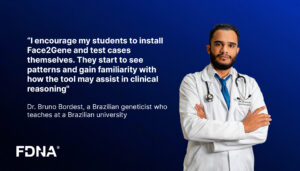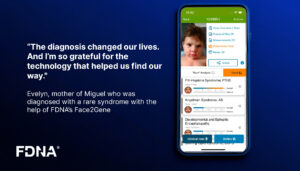September 9, 2022
“Face2Gene developed Gestalt Matcher technology: patient photos are matched to a molecular diagnosis even when the disorder was not part of the training set. The output is displayed in two parallel lists, the first one ranks with the matched patients and the second one ranks with the syndromes of the matched patients. This technology is now available in FACE2GENE Ultra rare Tab and can help doctors to achieve a diagnosis even when there are only a handful of diagnosed patients data on the system.”
The article from StartupHub.ai explains that FDNA’s new AI algorithm has successfully diagnosed the first patient with an ultra-rare disease. Face2Gene, leverages AI to analyze facial features and identify genetic anomalies. Face2Gene developed the GestaltMatcher technology to assist in diagnosing ultra-rare diseases by matching patient photos to molecular diagnoses, even for disorders not included in the initial training set. GestaltMatcher represents a significant advancement in identifying ultra-rare diseases, aiding medical professionals in achieving more accurate and timely diagnoses. FDNA’s innovative approach highlights the transformative potential of AI in healthcare, improving the accuracy and speed of diagnosing ultra-rare diseases, and ultimately enhancing patient outcomes and personalized care.


